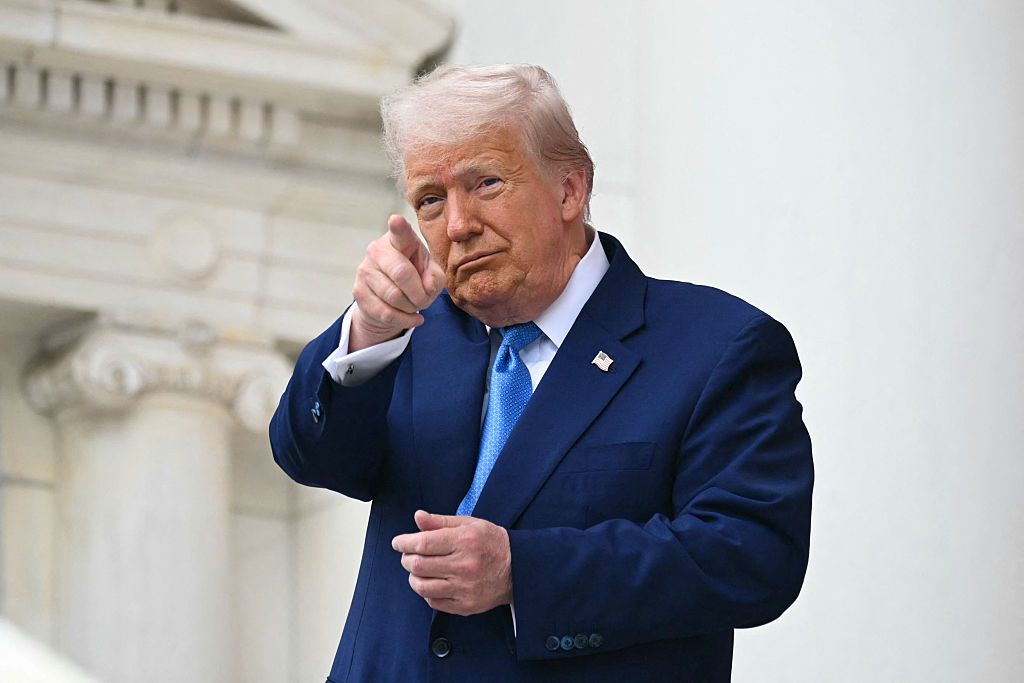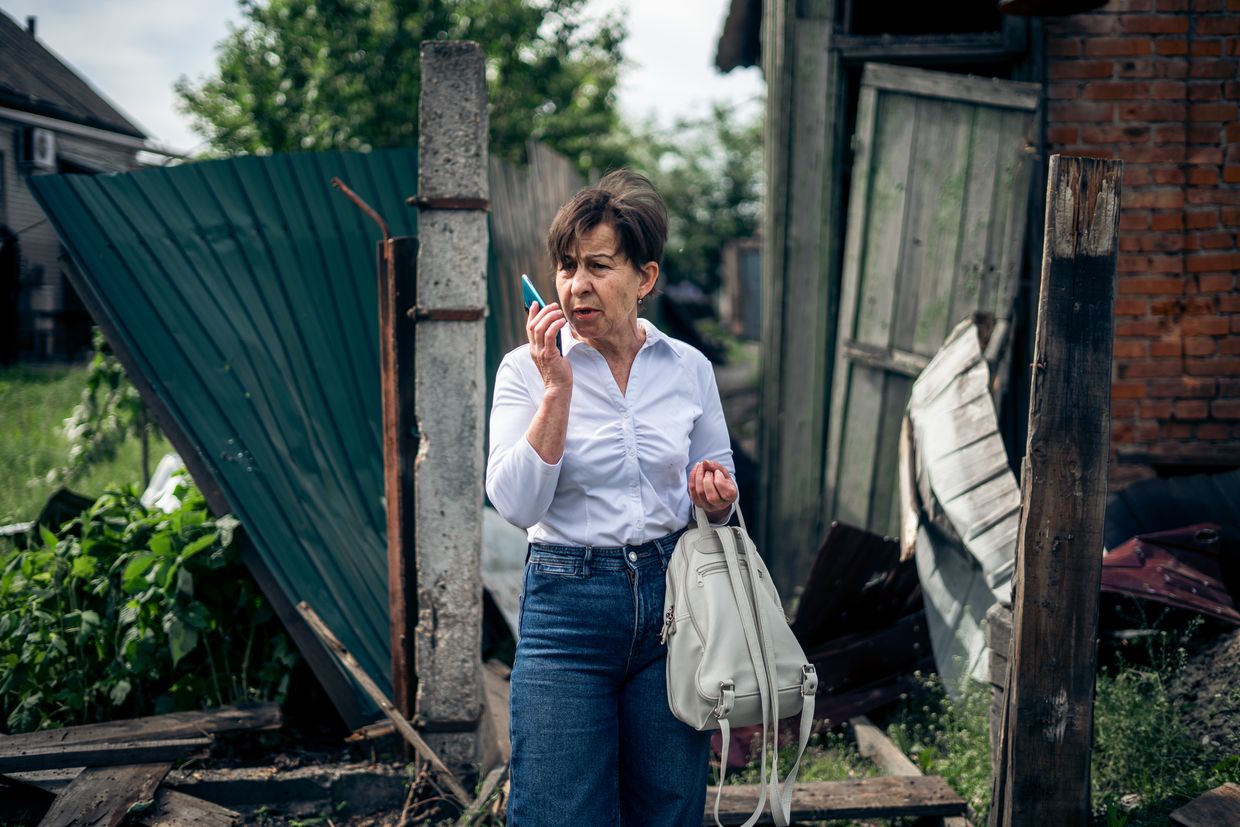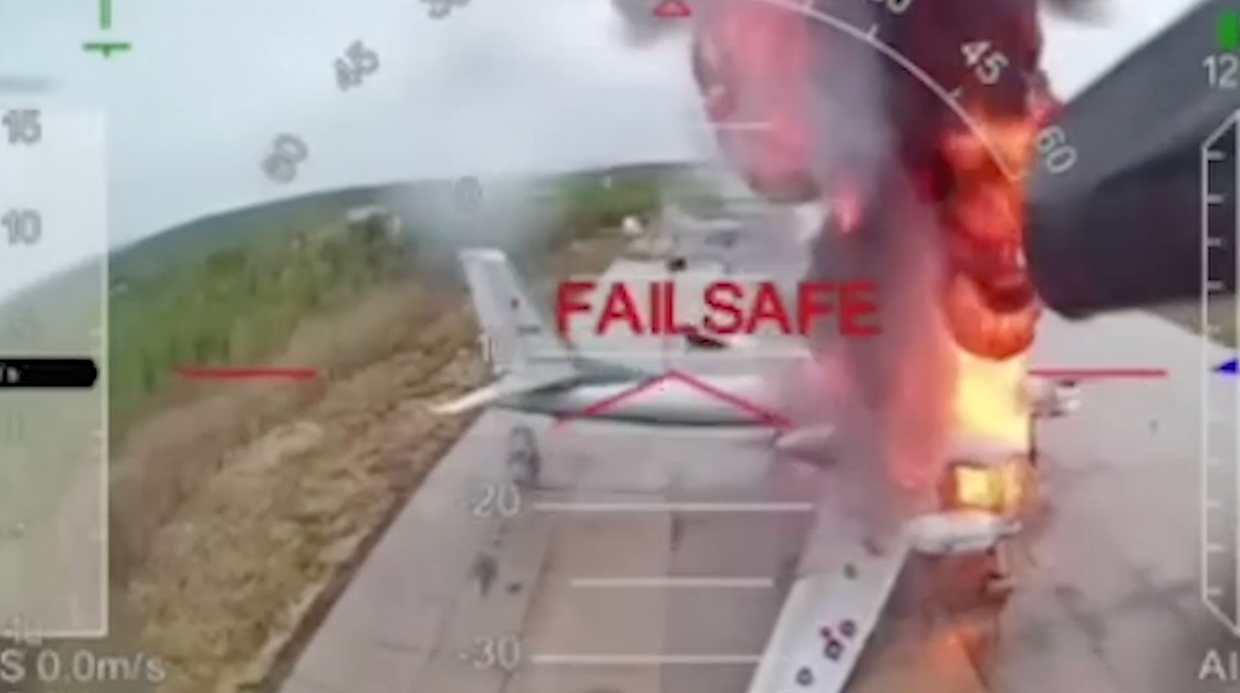Ukraine war latest: Ukraine, Russia agree on new prisoner swap, return of fallen soldiers

Key developments on June 2:
- Ukraine, Russia conclude talks in Istanbul, a 1,200-for-1,200 prisoner exchange is in the works, Zelensky says
- 5 Ukrainian regions, ban on NATO, limits on Kyiv's army — Russian media publishes Moscow's official peace demands
- 34% of Russian strategic Russian bombers at main airfields damaged in Ukrainian drone operation, SBU reports
- Over 160 Ukrainian drones downed across Russia, Moscow claims day after mass strike on airfields
- Russia recruiting Ukrainians for illegal activities in Europe, Ukrainian intel warns
The Ukrainian and Russian delegations concluded peace talks in Istanbul on June 2, agreeing on a new prisoners of war (POWs) exchange but failing to reach a ceasefire.
The talks, hosted by Turkish officials, follow the first round of negotiations on May 16. The initial meeting ended with an agreement on the largest prisoner exchange of the war, but without any tangible progress toward a peace deal.
The parties agreed to conduct a major swap, which will include severely injured and young people aged 18 to 25.
President Volodymyr Zelensky said that the next prisoner exchange would feature at least 1,000 people on each side, and might reach a 1,200-for-1,200 swap that would possibly also include imprisoned journalists and political prisoners held in Russia.
After the talks, Russia pledged to transfer 6,000 bodies of fallen Ukrainian soldiers and officers to Ukraine and also proposed a ceasefire for two or three days in some areas of the front line in order to retrieve the bodies of the fallen soldiers.
Zelensky said that only 15% of the mentioned 6,000 are identified and that Ukraine would need to check that the bodies Russia is willing to return are those of Ukrainian soldiers.
"We had instances when they returned bodies that later were identified as their own," Zelensky said on June 2.
Following the talks, the Kyiv Independent obtained the text of the peace proposals that Ukraine, in turn, presented to Russia in Istanbul.
According to the document, the Ukrainian delegation offered Moscow a complete ceasefire, the exchange of prisoners of war in an "all-for-all format," bringing back the children abducted by Russia, and the release of all civilians from Russian captivity.
Ukraine called for guarantees that would prevent Russia from repeating its aggression, as well as the involvement of the international community to achieve this.
According to Ukraine's proposal seen by the Kyiv Independent, Ukraine would continue on its path toward joining the EU and will become a member of NATO if there is consensus within the alliance.
Ukraine is also ready to agree to the gradual lifting of some sanctions against Russia, but with a mechanism for their renewal if necessary. Frozen Russian assets, in turn, should be used to rebuild Ukraine and pay reparations.
5 Ukrainian regions, ban on NATO, limits on Kyiv's army — Russian media publishes Moscow's official peace demands
The Russian delegation handed Ukraine a so-called "peace memorandum" with its proposals for a ceasefire during the second round of peace talks in Istanbul, Russian-state media outlet TASS reported on June 2, publishing the alleged document.
The Russian memorandum began circulating online following the talks between Russia and Ukraine in Istanbul, during which the parties again failed to reach a ceasefire.
Among Russia's key demands is the official recognition of Russia's annexation of Crimea, as well as the annexation of Ukraine's Kherson, Donetsk, Zaporizhzhia, and Luhansk oblasts, none of which Moscow controls in full.
Russia also demands the complete withdrawal of all troops from Kherson, Donetsk, Zaporizhzhia, and Luhansk oblasts, followed by demobilization in Ukraine.
Moscow's other demands include that Ukraine sticks to its neutral status, abandoning its aspirations to join NATO and other possible military alliances, a ban on the redeployment of Ukrainian troops, and a cessation of arms supplies and intelligence to Ukraine by its partners.
According to the document, Ukraine must abandon its claims for compensation for damages from the Russian war, guarantee amnesty for political prisoners, make Russian the official language, and not allow foreign troops to be deployed on its territory.
34% of Russian strategic Russian bombers at main airfields damaged in Ukrainian drone operation, SBU reports
The Ukrainian Security Service (SBU) reported that the June 1 "Spiderweb" drone operation caused approximately $7 billion in damages and disabled 34% of cruise missile bombers in key Russian airbases.
The agency confirmed that more details about the attack will be revealed later.
"We will strike them (Russia) at sea, in the air, and on the ground. And if needed, we'll get them from underground too," the SBU said in a message.
This operation targeted aircraft that is used in frequent long-range attacks on Ukrainian cities, and the plan had been in preparation for over a year and a half.
According to a Kyiv Independent SBU source, first-person-view (FPV) drones were covertly transported deep into Russian territory and hidden inside trucks before being launched against four major airfields.
The source said one of the airfields hit was the Belaya air base in Russia's Irkutsk Oblast, more than 4,000 kilometers from Ukraine.
Olenya air base in Russia's Murmansk Oblast, the Diaghilev airbase in Ryazan Oblast, Ivanovo airbase in Ivanovo Oblast were also targeted.
More than 40 aircraft are known to have been hit, including the A-50, Tu-95, and Tu-22 M3, according to the source.
The Tu-95 is a Soviet-era plane that made its first flight in 1952. It was originally used to carry nuclear bombs but has since evolved to launch cruise missiles.
Each aircraft can carry 16 cruise missiles — either the Kh-55/Kh-555 or the newer Kh-101 and Kh-102 air-launched cruise missiles.
Russia has escalated its attacks against Ukraine in recent weeks, amid ongoing U.S.-backed ceasefire talks and negotiations.
On May 26, Russian forces launched the most extensive drone attack of the full-scale war, reportedly involving 355 Shahed-type attack drones and decoys.
Over 160 Ukrainian drones downed across Russia, Moscow claims day after mass strike on airfields
Russian air defenses intercepted 162 Ukrainian drones in a massive overnight attack across several regions, Russia's Defense Ministry claimed on June 2, with damage and explosions reported in multiple oblasts.
The reported attacks come as Ukraine ramped up its drone strikes inside Russian territory over the last few weeks, including a mass attack on Russian air bases a day earlier.
The new wave of drones targeted multiple cities and industrial facilities overnight on June 2, according to Russian Telegram channels. Explosions and air raid sirens were reported in at least six oblasts, including Voronezh, Kursk, Lipetsk, Ryazan, Ivanovo, and Volgograd.
The ministry claimed the drones were intercepted between the evening of June 1 and the early hours of June 2.
The largest number was reportedly downed over Kursk Oblast (57 drones), followed by the Belgorod (31), Lipetsk (27), Voronezh (16), Bryansk (11), Ryazan (11), Oryol (six), and Tambov (one) oblasts. Two drones were shot down over Russian-occupied Crimea, according to the ministry.
Ukraine has not commented on the claims, which could not be independently verified.
The attack follows a series of similar UAV raids in recent weeks targeting both military and industrial infrastructure inside Russia.
The Security Service of Ukraine (SBU) claimed to have hit 41 Russian heavy bombers at four airfields across the country on June 1 in one of the largest operations inside Russian territory.

Russia recruiting Ukrainians for illegal activities in Europe, Ukrainian intel warns
Russian intelligence services are actively attempting to recruit Ukrainian nationals for illegal operations across the European Union, Ukraine's military intelligence agency (HUR) said on June 2.
In a statement, the agency warned that Kremlin-linked operatives are offering money to vulnerable Ukrainians, particularly those from Russian-occupied territories, to conduct surveillance of critical infrastructure and carry out other tasks for the benefit of the Russian state.
"The recruitment of Ukrainians for hostile operations in Europe is yet another tool of hybrid aggression that the Russian Federation is waging against Ukraine and the entire European community," the agency said.
The intelligence agency urged Ukrainian citizens abroad to immediately report any contact with suspicious individuals to local law enforcement or Ukrainian diplomatic missions.
The warning comes amid a growing number of suspected Russian-directed sabotage and arson plots across Europe involving Ukrainian nationals.
British security officials are currently investigating possible Russian involvement in a series of arson attacks targeting properties linked to U.K. Prime Minister Keir Starmer, the Financial Times reported on May 23. The incidents include fires at Starmer's family home, a vehicle, and a former residence in London earlier this month.
Three men — Ukrainian nationals Roman Lavrynovych and Petro Pochynok, and Romanian Stanislav Carpiuc — have been charged with conspiracy to commit arson with intent to endanger life. Prosecutors allege they acted in coordination with unknown individuals, and U.K. authorities are examining whether Russian agents may have recruited them.
German authorities have also accused three Ukrainian nationals of being involved in a Russian-orchestrated parcel bomb plot, according to Der Spiegel. The suspects were arrested in May during coordinated raids in Germany and Switzerland.
In a separate case on May 12, Poland charged two Ukrainians in connection with suspected Russian-backed arson attacks at an IKEA store in Vilnius and a shopping mall in Warsaw in 2024.
Additionally, Russian intelligence is believed to be behind a July 2024 fire at a DHL airport logistics hub in Leipzig, Germany. Investigators said a flammable package sent from Lithuania was marked for delivery to a fake address in Birmingham, U.K.
Western officials have repeatedly accused Moscow of using covert sabotage, cyberattacks, and disinformation as part of its broader campaign to destabilize European nations that support Ukraine during the Russian large-scale war.
The Ukrainian intelligence agency emphasized that such operations rely on exploiting desperate individuals and weaponizing them against host countries. It called on European governments to remain vigilant and closely coordinate with Ukrainian security services.
Note from the author:
Ukraine War Latest is put together by the Kyiv Independent news desk team, who keep you informed 24 hours a day, seven days a week. If you value our work and want to ensure we have the resources to continue, join the Kyiv Independent community.















